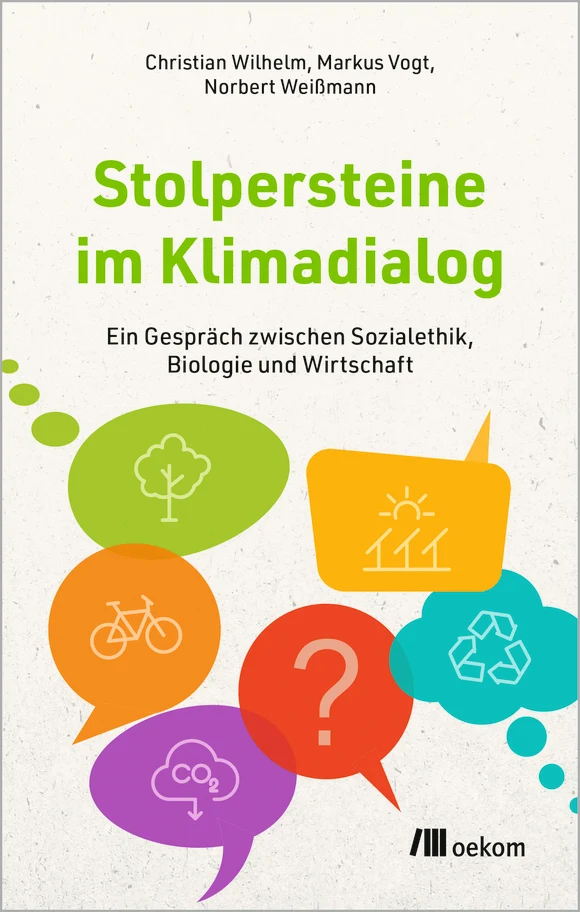Editors’ Choice
Book Release: “Stumbling Blocks in Climate Dialogue” by Christian Wilhelm, Markus Vogt, and Norbert Weißmann
by Christian Wilhelm (UL and longstanding iDiv Member)


At iDiv and many other research institutions, we scientists acquire new knowledge year after year about why climate action is more urgent than ever. However, genuinely effective climate protection measures remain politically challenging to implement in Germany, Europe, and worldwide (with few exceptions). The reasons for this are varied. It is not a lack of information, but rather the interpretation of facts and short-term interests, that determine the measures. The question is, what can we as scientists do to close this gap between knowledge and action? During talks with citizens, for example, in Lausitz, we participated in challenging conversations where dialogue about climate issues failed and led to confrontation. We have repeatedly seen that when it comes to climate action, scientific arguments overlap with those related to the economy and social ethics, complicating understanding.
For example, it is argued that Germany cannot significantly impact climate change because our contribution to global CO2 emissions is meaningless as long as China and the USA emit so much CO2. Experts who approved the expansion of Leipzig Airport used this argument in their environmental report: The additional CO2 emissions from Leipzig Airport would be so small compared to the total German CO2 emissions that they would not affect the achievement of climate goals. While this argument is technically correct, it is ethically wrong. It violates the categorical imperative, which states that your actions must be the basis of a general law. This ethical argument is the foundation of our legal system and, thus, of peaceful coexistence. What is wrong remains wrong, even if the damage is minor: You mustn’t run a red light at night, even if no other car is in sight.
Therefore, we decided to write a conversational book instead of a scientific one. We are a biologist (Christian Wilhelm, long-time member of iDiv), an economist (Norbert Weißmann), who has many years of experience in approving environmental chemicals in the industrial EU, and a social ethicist (Markus Vogt, professor of social ethics at LMU in Munich), who has made a name for himself with the work „Christliche Umweltethik“. We have known each other for several years as former recipients of talent development program scholarships.
The trialogue addresses the major areas of conflict in the public discourse. It complements topics often overlooked by media headlines, such as the fact that species extinction and ecologically destructive land use are significant drivers of global warming, not just anthropogenic emissions of climate gases. The book avoids a confrontational approach, where facts or the denial of facts are used like clubs. Instead, we use examples and tell stories.
We interweave them, hoping that the reader will retell them and, thus, better understand the conflicts. The conversation seeks to navigate the complexities of climate transformation, presenting various actionable steps: small behavioural changes in private life, as well as supporting political measures that are genuinely climate-protective but currently fail to secure a political majority. The trialogue is supported by key literature that promotes in-depth reading without requiring a deep understanding of the original scientific texts. The book allows iDiv members and employees to perceive the value of their work in a broader context and explain it to those unable to assess primary scientific research.
The book is published by Oekom Verlag, and is available in bookstores in paperback. Thanks to financial support from the Open Access Fund of Leipzig University, you can also download it as a free PDF.
Christian Wilhelm, Markus Vogt, Norbert Weißmann (2024). Stolpersteine im Klimadialog: Ein Gespräch zwischen Sozialethik, Biologie und Wirtschaft. ISBN: 978-3-98726-134-3. DOI: 10.14512/9783987263996